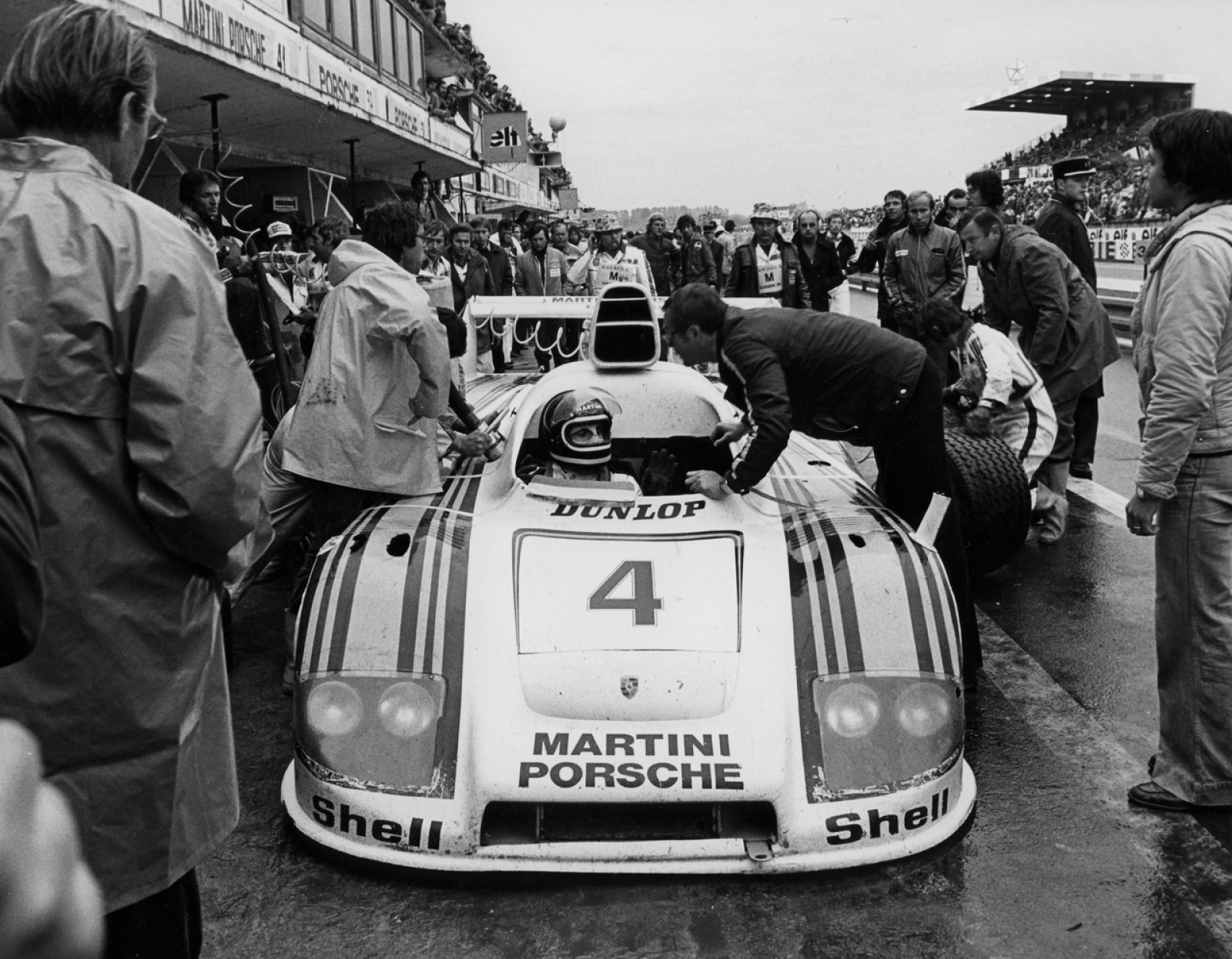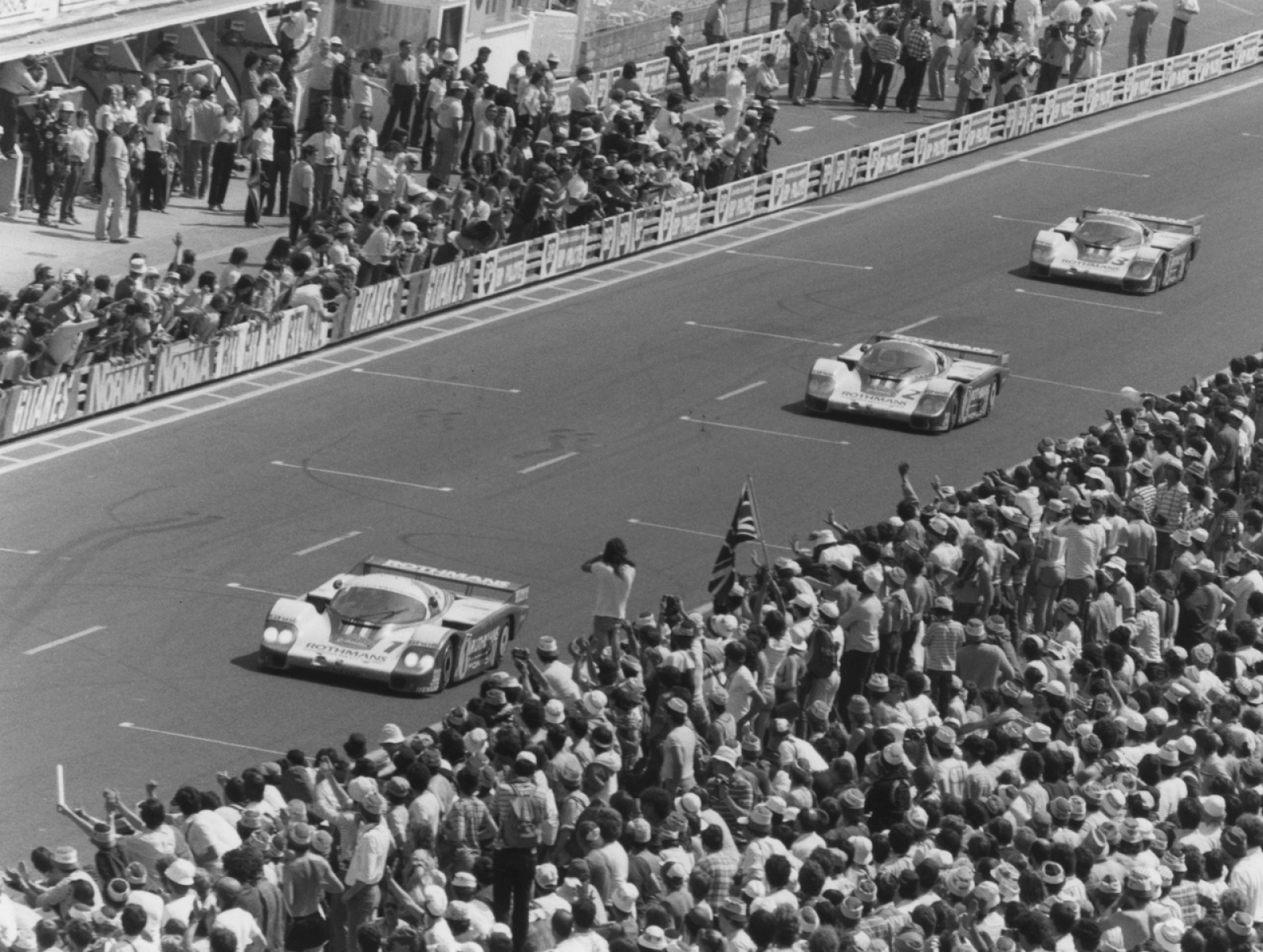Discovering the 24 Hours in 1966
"In 1966, I was 21 years old. I had done two races in the U.S. where I met a man named Skip Scott. He was running Ford GT40s at the 24 Hours of Le Mans and recruited me for his team, Essex Wire. At that time, motorsport did not have the level of safety it has today, there were serious or fatal accidents on a daily basis. What makes the overconfidence of youth is the lack of survival instinct. At 20 years old, we know nothing of the fragility or brevity of life, so nothing can stop you. During the 1960s, there were so many accidents that everyone was directly affected at one time or another. It stopped no one, but we were all aware when we left for a race weekend, we may not make it back home on Monday."
1969 | The walk to victory
"The problem with the magnificent Le Mans start, that Pierre Fillon has masterfully updated, is there is a choice to make. When you run to your car hoping to be one of the first to take off, it is out of the question to fasten your harnass. We were not among the favorites (in 1969, Ickx and Jackie Oliver were 14th on the starting grid, Ed.), and in a long distance race such as the 24 Hours, the start is of relative insignificance. So it was easy to start last and calmly secure your harnass. Certainly, we started last and finished first. But just think if we had finished second...today they may say to me: 'instead of being clever at the start, you could have hurried a bit more and won the race.' But the most important thing is to act with conviction. And it caused the start of the 24 Hours of Le Mans to be changed, for the good of everyone."
1970-1973 | The Ferrari years
"Enzo Ferrari was also around when motorsport was still dangerous. I don't think he was able to become great friends or be very affectionate with the drivers competing for him. As the risk of accidents was very significant, he didn't want to become too close with them and then possibly suffer. I remember Enzo Ferrari as a very affectionate and sensitive man. I did not leave Ferrari on bad terms. I left because I wanted to do Formula 1 and endurance racing at the same time (which was quite common in the 1970s, Ed.), but with Ferrari that would not have been possible. What made 24 Hours of Le Mans history were these huge duels, with effectively Matra and Ferrari. There was an incredible boom for Matra and Jean-Luc Lagardère who decided to become involved in motorsport and incorporate the aeronautical knowledge of his engineers."
1977 | A win from way behind
"Of my successful editions of the 24 Hours of Le Mans, 1977 is the first that should be mentioned because for all intents and purposes, it was a race lost. It started with Henri Pescarolo, but ended after only three hours. I should not have won that year. A race like that, there aren't many in the life of a driver. It was magical because we turned a failed race into a win, and the whole team rose to the occasion."
A race of endurance…and speed
"When I got to Le Mans at about 20-22 years old, it was the pinnacle of endurance races and even motorsport because in the late 1960s, Formula 1 was not what it is today. Back then, the 24 Hours was not the Le Mans grand prix it is now at full throttle the entire time. It was hit or miss. Forty-five years ago, when the cars were fragile, you had to take care of them throughout the distance and exploit them at the right times. I was not a contender for victory in 1969, but it wasn't a problem. That's what racing is all about: surprises, challenges...so you always have to believe and do your best."
Acknowledging the other heroes of the 24 Hours
"You have to break things down. The heroes are perceived on the track, but that's an enormous injustice because so much is done behind the scenes, by people you never see. Those are the ones who make a driver what he is. They are passionate and work in the shadows. They are the craftsmen of a project, whichever race it is in the world. They give you a tool, and if it's the right time, it becomes the winning tool. The only thing left for the driver to do - so to speak! - is to stay on the track and go as fast as possible. So, my teammates and I were all in the same boat. Of course, you can't win at Le Mans without good teammates, but it's nothing compared to the work done beforehand. In everyone's journey, they are people who interest you, who can give you advice - even though you may not always heed it - who have talked with you about a book, an author, a member of his or her family, his or her significant other...those are the people who make up our lives. I don't believe in anyone who claims to be self-made. For me, there's no such thing. We are all the fruit of a succession of circumstances."
PHOTOS (Copyright - ACO Archives): LE MANS (SARTHE, FRANCE), CIRCUIT DES 24 HEURES, 24 HOURS OF LE MANS. From top to bottom: Jacky Ickx in 1982 with his first wife Catherine, the mother of their daughter Vanina who would go on herself to take the start seven times between 2001 and 2011; at the wheel of this Ford GT40, Ickx and British driver Jackie Oliver snatched the win in the final lap; after yet another incredible return from behind in 1977, Ickx matched the win record of four held since 1962 by fellow countryman Olivier Gendebien; after those in 1969, 1975, 1976, 1977 and 1982, Ickx won his sixth and final win (#1) by leading a Porsche hat trick in the order of racing numbers.




